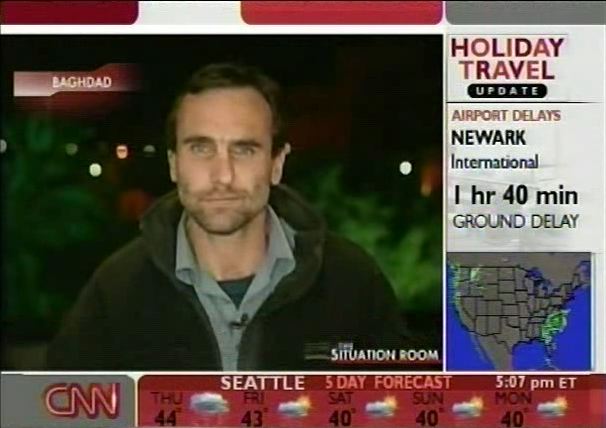TSR: "a sign of how urgently people need things to change here."

Click photo to play
Length: 2:38
JOHN KING: And as the insurgency rages in Iraq, civilian death tolls reach new heights. Can a summit make a difference?
Correspondent Michael Ware joins us now from Baghdad.
Michael, President Bush announcing he will travel to Jordan to meet Prime Minister Maliki next week, even though the president has already said there will be no major policy changes until he gets the report of the Iraq Study Group led by former secretary of state, Jim Baker. That is still several weeks away. So, why this meeting now? Is there something Mr. Maliki wants or Mr. Maliki needs from such a summit?
MICHAEL WARE, CNN NEWS CORRESPONDENT: Well, it is just all pure guesswork at this stage, John. The Iraqi prime minister and his office are remaining tight-lipped about the true forces behind this meeting. And certainly we've heard very little from the White House in terms of the detail. Clearly, this comes at a time of American strategic uncertainty. Indeed with the Baker-Hamilton review not to come out until the end of the year, this period could even be a period of crisis if it drags out that long.
So, certainly this is just a sign of how urgently people need things to change here. And I think these two leaders are getting together to try and spur things along. However, the sad fact is I don't think that either of the players, neither Prime Minister Maliki, nor President Bush have a winning hand right now. So it is difficult to see just what they can hope to achieve.
KING: And Michael, the backdrop for this meeting, not only the policy review underway here in the United States, but this stunningly depressing new report from the United Nations saying the civilian death toll, more than 3,700 last month, a record-setting month. Any end in sight? And I assume this is mostly the result of the sectarian violence you speak of.
WARE: Absolutely. As the United Nations assistance mission in Iraq says that the 3,709 Iraqi civilians that are known of, who died in October -- that's the worst death count of any month since the U.S. invasion back in 2003 -- is due to terrorism, violence from the insurgency, and sectarian violence. So, this very much paints a tragic, tragic picture. And when you put it back to back with the U.N.'s last report, before this one, we're talking about the deaths of more than 13,500 men, women, and children in four months alone.
KING: Michael Ware, for us in Baghdad. Michael, thank you very much.
WARE: Thank you, John.
